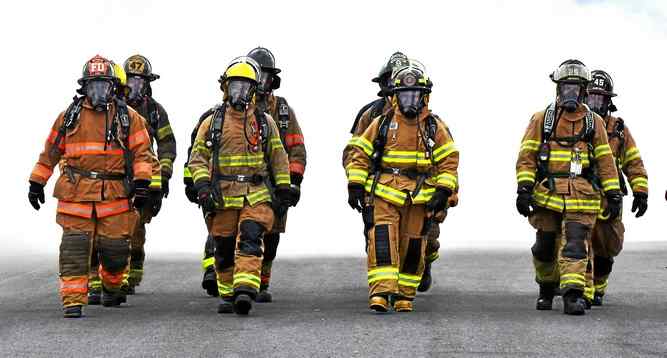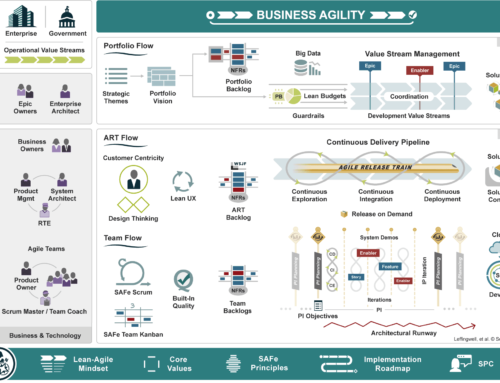
For the last five years, I have done my best to answer this question. I can show them the list of 42 tasks for a ScrumMaster from Bernd Schiffer and the ScrumMaster checklist from Michael James. We can have a twenty minute discussion on why these tasks are important, valuable and worthy and I can tell the story of Cenée LaTulippe. And, yet people still ask the question, “Do we really need a fulltime ScrumMaster?”, which suggests they are not buying it.
When I gave my keynote speech (in Spanish) at Scrum Day Oviedo on the topic of Fearless Journey, I stumbled across the metaphor of ScrumMaster as a fire fighter. This metaphor seems to resonate with some people, so let’s explore ScrumMaster as fire fighter to help people understand more about the benefits of fulltime ScrumMasters and respond to this common misconception.
Fires are not planned: fires and emergencies happen when they happen. Fire fighters need to be alert and available at a moment’s notice to respond to danger. That is the same with the ScrumMaster. The really dangerous fires to an organization, or a Team, happen during that random meeting or after a brief hallway conversation with a senior leader. A ScrumMaster who is doing technical work or serving on another Scrum Team, will not detect the fire until it is has engulfed the Team, the Sprint or the organization.
- Fire fighters have spare capacity: no one expects a fire fighter to be fighting fires eight hours a day, 365 days a year. In fact, most of their time is spent waiting for the fire. In the business world, we call that space capacity “slack”. If fire fighters were fighting fires everyday, for eight hours a day, there is one of two things at work: an arsonist is on the lose or the fire department is underfunded (more on this topic below). Again, I would say we need to think the same way when thinking about Scrum. If a ScrumMaster is fighting organizational fires all day, everyday, then someone needs to step back and find the arsonist starting all the fires. A ScrumMaster cannot track down the (organizational) arsonist without some slack and help form others (see below).
- Fire fighters spend their idle time doing useful work: when fire fighters are not fighting fires, they often are maintaining their equipment, training, inspecting buildings or educating people about fire safety. This is part of the job of a professional fire fighter and important work. So why do some people expect a ScrumMaster to do technical work, unrelated to Scrum and Agile, when they have spare time? Why do we expect ScrumMasters to be working on multiple teams at the same time? ScrumMasters have important Agile jobs to finish when not participating or leading the Retrospectives, Sprint Reviews, Sprint Planning or the Daily Scrum.
Fireman participate in mutual aid agreements: in California wildfires are common in the late Summer and in the Fall. When these types of fires exceed the capacity of single fire district, fire fighters reach out for help from other fire districts to contain and put out wildfires. Fire fighters can do this because they have spare capacity to share with other fire teams when a fire emergency occurs elsewhere in the county, state or outside the state. Once more, the same type of thinking should apply when thinking of our ScrumMasters. ScrumMasters should lend aid when they are asked for help and reach out to others when they encounter a challenge beyond their capacity to control or handle safely.
- Having too few firemen is dangerous: when a city underfunds the fire department, response times slow down, equipment needs more frequent repairs, training is delayed and supplies run low. While one of these factors increases the risk to community, when many of them come together at the same time, fire stations are shut down or go into “rolling brownouts“. When organizations take the same attitude with underfunding their ScrumMasters, they get the same type of results – small fires turning into big fires, delayed response times and inability to respond effectively to different types of fires that occur in the business.


 Fires are not planned: fires and emergencies happen when they happen. Fire fighters need to be alert and available at a moment’s notice to respond to danger. That is the same with the ScrumMaster. The really dangerous fires to an organization, or a Team, happen during that random meeting or after a brief hallway conversation with a senior leader. A ScrumMaster who is doing technical work or serving on another Scrum Team, will not detect the fire until it is has engulfed the Team, the Sprint or the organization.
Fires are not planned: fires and emergencies happen when they happen. Fire fighters need to be alert and available at a moment’s notice to respond to danger. That is the same with the ScrumMaster. The really dangerous fires to an organization, or a Team, happen during that random meeting or after a brief hallway conversation with a senior leader. A ScrumMaster who is doing technical work or serving on another Scrum Team, will not detect the fire until it is has engulfed the Team, the Sprint or the organization. Fireman participate in mutual aid agreements: in California wildfires are common in the late Summer and in the Fall. When these types of fires exceed the capacity of single fire district, fire fighters reach out for help from other fire districts to contain and put out wildfires. Fire fighters can do this because they have spare capacity to share with other fire teams when a fire emergency occurs elsewhere in the county, state or outside the state. Once more, the same type of thinking should apply when thinking of our ScrumMasters. ScrumMasters should lend aid when they are asked for help and reach out to others when they encounter a challenge beyond their capacity to control or handle safely.
Fireman participate in mutual aid agreements: in California wildfires are common in the late Summer and in the Fall. When these types of fires exceed the capacity of single fire district, fire fighters reach out for help from other fire districts to contain and put out wildfires. Fire fighters can do this because they have spare capacity to share with other fire teams when a fire emergency occurs elsewhere in the county, state or outside the state. Once more, the same type of thinking should apply when thinking of our ScrumMasters. ScrumMasters should lend aid when they are asked for help and reach out to others when they encounter a challenge beyond their capacity to control or handle safely.



